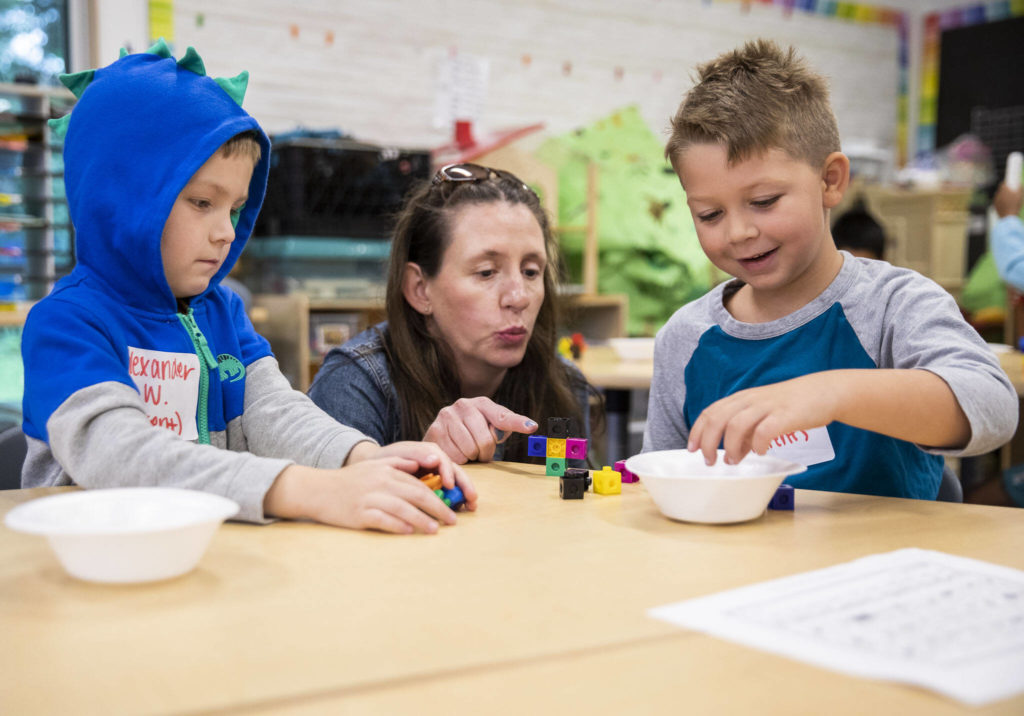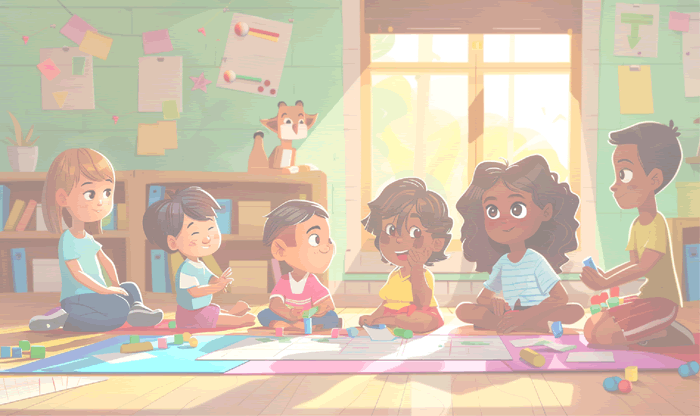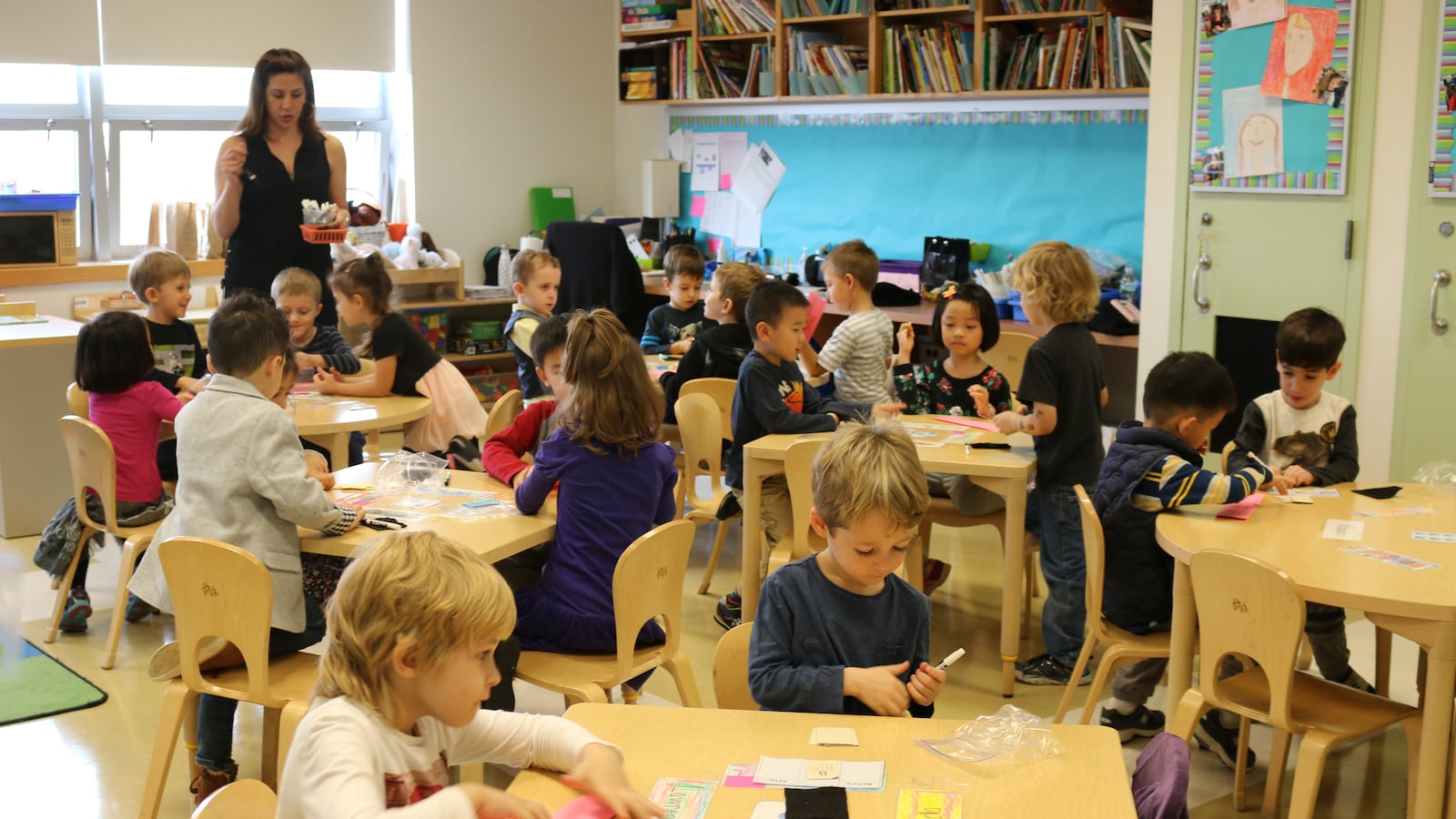Why science experiments ignite curiosity in Grade School classrooms
The Relevance of Interactive Tasks in Grade Institution Education And Learning
Interactive activities play a crucial role in elementary school education and learning. They engage trainees and improve learning outcomes. Through group tasks and hands-on experiments, students experience the product in a sensible way. This strategy provides to varied knowing designs and advertises vital abilities. Nonetheless, the advantages expand beyond academics. Checking out the deeper impact of these tasks reveals their importance in shaping young learners' futures. What transformations happen when students actively take part?
Enhancing Engagement With Interactive Discovering
Typical mentor approaches have their advantages, interactive knowing substantially boosts student engagement in quality school education and learning. This strategy urges energetic participation, allowing trainees to immerse themselves in the learning process. By utilizing team tasks, hands-on experiments, and technology-driven sources, teachers produce an atmosphere where pupils feel more attached to the material.
Interactive learning promotes partnership among peers, cultivating interaction skills and team effort. It additionally satisfies diverse learning designs, guaranteeing that visual, acoustic, and kinesthetic students can all thrive. Students are more likely to retain information when they actively participate, as opposed to passively getting knowledge.
This vibrant technique not just makes discovering delightful however additionally imparts a feeling of ownership in students concerning their instructional journey. As they engage with the material, their interest and inspiration to learn boost, laying a strong structure for future scholastic success.
Creating Important Assuming Skills
Interactive learning not only enhances engagement yet likewise functions as a stimulant for creating vital thinking skills in grade school students. Through tasks such as problem-based discovering, disputes, and hands-on experiments, students are motivated to examine details, assess different viewpoints, and create reasoned final thoughts. These interactive experiences need pupils to wonder about presumptions, leading them to assume even more deeply about various subjects.

Additionally, interactive tasks typically present real-world scenarios that challenge trainees to apply their understanding creatively. By navigating through these obstacles, they discover to recognize relevant info and make educated choices. This procedure fosters not just specific crucial reasoning however additionally urges trainees to express their thought processes, boosting their capacity to connect properly. Consequently, interactive discovering atmospheres cultivate a generation of crucial thinkers who are better prepared to take on complex issues in their future academic and specialist ventures.
Promoting Cooperation Among Peers
Fostering partnership amongst peers is necessary in quality school education, as it boosts team effort and interaction skills. Engaging in group tasks aids trainees build depend on and regard for one an additional, laying the foundation for reliable cooperation. Problem-solving with each other enables pupils to learn from each other and establish a collective technique to difficulties.
Team Effort and Communication Skills
Reliable team effort and interaction skills are vital elements of a successful grade college education. Taking part in interactive activities motivates pupils to team up, share ideas, and fix problems together. Such experiences advertise the advancement of essential interaction capabilities, allowing youngsters to express their thoughts clearly and pay attention actively to others. Through team effort, pupils learn to value diverse viewpoints, cultivating a feeling of area and shared duty. Structured team jobs, whether in academics or creative projects, boost peer interactions, teaching children how to discuss functions and settle problems. These skills not just add to a positive class atmosphere however also prepare students for future collaborative ventures in higher education and the workplace. Generally, team effort and interaction are fundamental to holistic development in elementary school.
Building Count On and Respect
Structure count on and respect among peers offers as a foundation for effective partnership in quality college settings. When trainees really feel valued and appreciated by their schoolmates, they are more probable to engage proactively in group tasks. Interactive tasks, such as group projects and participating games, supply chances for students to pick up from each other, promoting a feeling of community. This environment motivates open interaction, permitting pupils to share their concepts and point of views without anxiety of judgment. As depend on builds, students come to be extra ready to share responsibilities and sustain each other's learning. Ultimately, growing an environment of trust fund and regard improves not just academic results yet also social advancement, furnishing students with essential interpersonal abilities for their future ventures.
Problem-Solving With each other
Joint analytic engages pupils in critical reasoning Get More Information and synergy, important abilities for their scholastic and individual growth. When trainees function with each other to take on difficulties, they find out to communicate successfully, respect varied viewpoints, and leverage each other's staminas. This process enhances their capacity to examine troubles from different angles and develop creative solutions. Team activities, such as science experiments or math difficulties, advertise energetic involvement and cultivate a feeling of community. As trainees collaborate, they additionally develop social skills, learning to bargain and compromise, which are critical for future communications. Eventually, problem-solving with each other grows a helpful understanding atmosphere, equipping students to take ownership of their education and learning while preparing them for joint undertakings beyond the classroom.
Encouraging Creative Thinking and Advancement
Urging imagination and innovation in elementary school education can be significantly enhanced with hands-on learning experiences. These tasks allow trainees to engage directly with principles and materials, fostering imaginative reasoning. Additionally, joint group tasks can promote diverse ideas and options, better supporting an imaginative setting.
Hands-On Understanding Knowledge
A plethora of hands-on discovering experiences considerably boosts creative thinking and innovation in grade college education. Involving trainees in practical activities enables them to use academic understanding in real-world contexts, cultivating much deeper understanding. By adjusting devices and materials, youngsters establish essential problem-solving abilities and learn to believe outside package. These experiences inspire interest and motivate students to explore their interests better. Furthermore, hands-on tasks can link different subjects, connecting science, art, and math in meaningful methods. This interdisciplinary approach motivates students to see links and assume artistically. Ultimately, hands-on understanding experiences nurture a generation of innovators, equipping them with the skills and confidence required to tackle future difficulties and contribute to society in unique means.
Collaborative Group Projects
Hands-on discovering experiences normally cause the unification of joint team jobs, which play a vital duty in fostering imagination and innovation in elementary school education and learning. These tasks motivate pupils to collaborate, sharing concepts and point of views, which improves analytical skills and critical thinking. With collaboration, pupils find out to interact successfully and respect varied perspectives, important abilities for their future. Furthermore, group jobs give possibilities for students to try out different roles, increasing their flexibility and self-confidence. Taking part in this cooperative atmosphere enables them to discover their creative thinking, pressing the boundaries of conventional understanding. Ultimately, collaborative group jobs not just enrich the educational experience however likewise prepare pupils for real-world obstacles that need team effort and ingenious reasoning.
Structure Confidence and Independence
As students involve in interactive activities, they commonly find chances to build self-confidence and independence. These tasks, whether they entail hands-on jobs, role-playing, or problem-solving tasks, motivate trainees to take effort and share their concepts honestly. By taking part in such experiences, trainees learn to trust their capacities and make decisions without depending exclusively on assistance from instructors or peers.
Interactive activities promote reference a feeling of ownership over knowing. They create essential thinking skills and durability when students tackle difficulties collaboratively or independently. This process not only improves their understanding of the subject matter but likewise empowers them to take risks in their learning trip.
As they browse various interactive situations, students slowly dropped their self-doubt, leading the way for boosted self-worth - Private School. Ultimately, these tasks play a necessary function in supporting positive and independent learners, equipped to deal with future academic and individual obstacles
Producing a Favorable Class Environment
While cultivating a positive classroom atmosphere is crucial for effective discovering, it needs intentional effort from teachers to develop a space where trainees feel safe, respected, and involved. A favorable atmosphere encourages partnership, enabling pupils to express themselves without fear of judgment.
Educators can accomplish this by developing clear expectations, promoting mutual respect, and identifying individual payments. Integrating interactive activities additionally enhances involvement, making discovering more vibrant and enjoyable.
In addition, a caring atmosphere supports social-emotional growth, as pupils discover to browse connections and solve disputes. Teachers play an essential duty in modeling favorable actions and enhancing a culture of kindness and inclusivity.
Regularly Asked Concerns

Just How Can Parents Assistance Interactive Learning at Home?
Parents can sustain interactive knowing at home by giving appealing products, motivating hands-on tasks, including educational video games, fostering discussions, and producing a nurturing environment that advertises curiosity and exploration in their children's discovering experiences. (Kindergarten)
What Kinds Of Interactive Activities Are A Lot Of Reliable?
Hands-on projects, collective games, find role-playing scenarios, and instructional technology applications are amongst the most efficient interactive activities. These engage trainees, boost crucial assuming skills, and advertise synergy, eventually cultivating a much deeper understanding of various topics.
Exactly How Do Interactive Tasks Deal With Various Knowing Styles?
Interactive tasks involve visual, acoustic, and kinesthetic learners by incorporating varied approaches. These activities help with comprehending through hands-on experiences, collaborative discussions, and visual help, enabling students to absorb details according to their recommended learning design.
What Are the Expenses Connected With Applying Interactive Activities?

Applying interactive activities incurs costs such as products, training for instructors, modern technology upgrades, and prospective center modifications. Spending plan restraints can additionally impact the frequency and variety of activities offered to students in instructional setups.
Exactly How Can Teachers Evaluate the Effect of Interactive Learning?
Teachers can evaluate the influence of interactive discovering through monitorings, trainee comments, efficiency metrics, and comparative evaluation of examination ratings prior to and after execution, guaranteeing an extensive understanding of interaction and expertise retention improvements.
With tasks such as problem-based knowing, discussions, and hands-on experiments, students are encouraged to evaluate details, evaluate different viewpoints, and develop reasoned verdicts. Interactive tasks often present real-world situations that challenge pupils to apply their understanding artistically. Engaging in interactive activities urges trainees to team up, share ideas, and fix issues together. Interactive activities, such as group tasks and cooperative video games, provide opportunities for students to learn from one an additional, cultivating a sense of area. As trainees involve in interactive tasks, they commonly uncover opportunities to develop confidence and self-reliance.